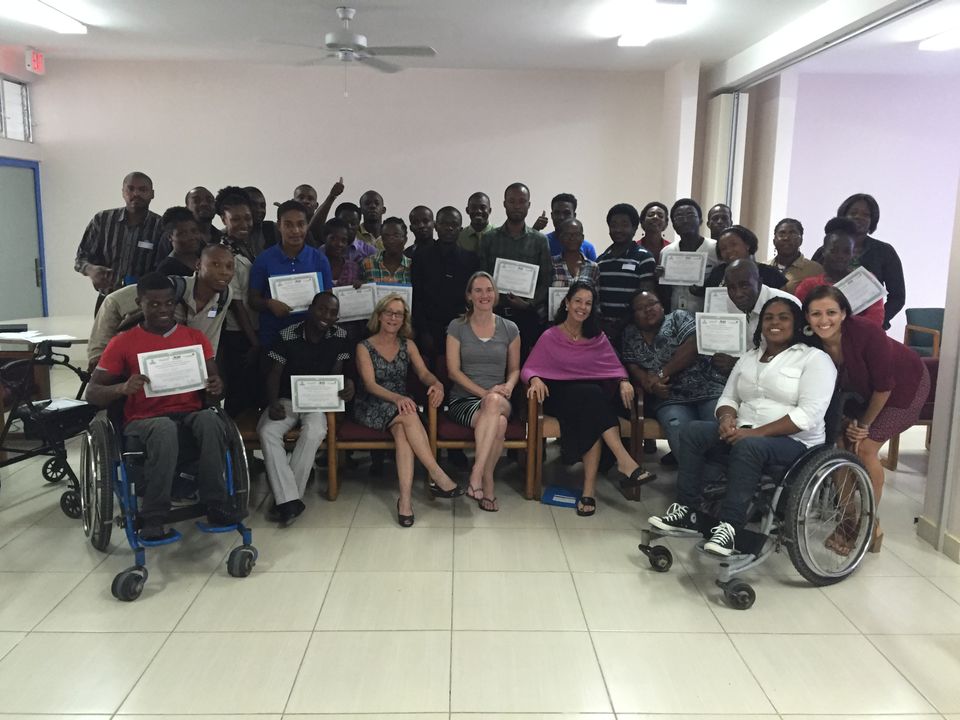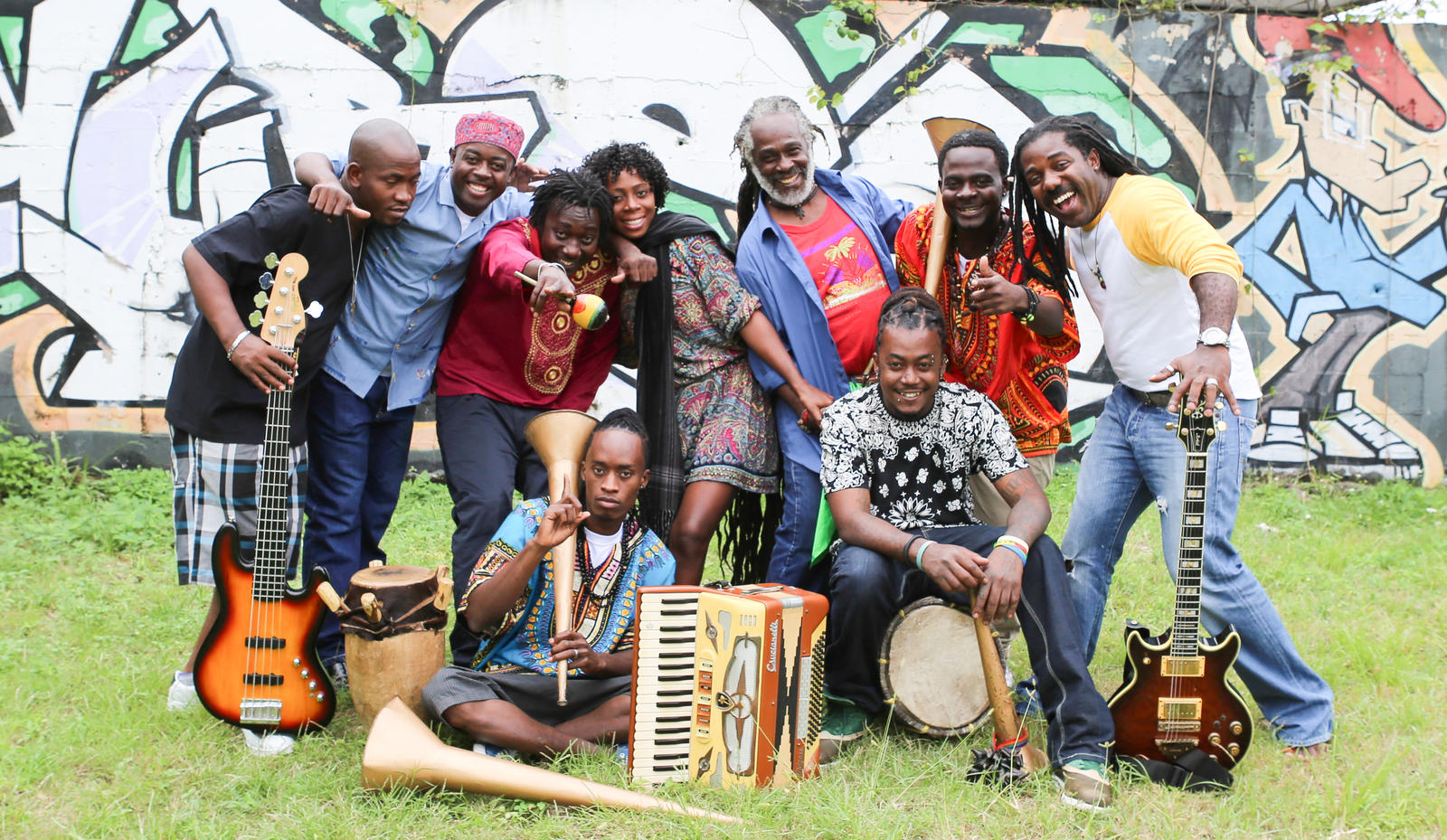After a major earthquake devastated Haiti in 2010, many people became disabled by injuries. Perhaps equally damaging, many of them were then abandoned by their families.
“People with disabilities in Haiti, people don’t see it like they should, like they are people with rights,” said Myzraelle Casimir Zidor, known as Madam Zidor, program coordinator for the Rehabilitation Center at St. Boniface Hospital Haiti. Zidor said families did not know how they would find food and housing after the earthquake, and taking care of someone with disabilities seemed impossible.
“Many people were abandoned in the hospital, abandoned when they were injured,” said Lauren Easton, senior director of behavior health at Commonwealth Care Alliance.
Now, with the help of the Boston-based Commonwealth Care Alliance, St. Boniface is running a center that provides rehabilitation services, both medical and mental health, for people with spinal cord injuries.
Zidor said before the program started, the hospital was offering good medical care. But it lacked mental health care and follow-up services. Even many doctors did not understand the value of treating psychiatric issues.
“Both mental health and people with disabilities, it was taboo in Haiti,” Zidor said.
Spinal cord injuries generally result in paralysis, and they can cause complications with the skin, bladder, respiratory system and other areas. Before the program started, someone with a spinal cord injury in Haiti had a life expectancy of 18 to 24 months.
Commonwealth Care Alliance is a nonprofit health insurer and provider network that provides services to people who are eligible for MassHealth and Medicare. In 2010, a CCA doctor was contacted by Doctors Without Borders, which delivers medical services to needy areas, about sending a team to help people with spinal cord injuries.
Easton led the team to Haiti and found a need for behavioral health and psychiatric services to help people deal with the trauma, depression and anxiety that came after a natural disaster. The Americans worked with a team in Haiti to set up a rehabilitation center as part of St. Boniface Hospital in a rural area of Haiti called Fond-des-Blancs.
The program got funding from the U.S. Agency for International Development, and CCA also does private fundraising. It continues until today.
Zidor was in Boston last week to visit CCA facilities, and she and Easton spoke to a reporter in Boston.
Today, the inpatient rehabilitation center has 16 beds. Another eight beds are available for people who are medically ready to leave but cannot because of social problems – their family is unable to take them in or they lack appropriate housing.
The facility has treated 135 people since 2010.
Today, many of the patients are living for years.
The rehabilitation center offers specialized medical care and rehabilitation, but it also focuses on social and psychological needs. U.S. clinicians visit annually and train Haitian providers.
Social workers may help someone figure out how to return to a village where people are not used to seeing wheelchairs. Staff work with family members to teach the family how to support someone with a disability. The program offers vocational training where people with spinal cord injuries can learn computer skills, so they can work, and gardening, so they can grow food. It connects people with schooling and micro financing loans. Some former patients were hired by the hospital as peer educators. Staff also do home visits.
Easton said psychiatric medication remains culturally unacceptable and expensive, so few patients use it.
Zidor said she sees a major change in patients once they leave the rehabilitation center. They are no longer afraid of going home, they are more confident and their families tend to be more supportive.
One man, after his injury, used to not leave his house. He now goes out in his wheelchair and works as a DJ and a peer educator.
“We help them to adjust, then find a new way to live,” Zidor said.
By: Shira Schoenberg | Mass Live | March 4, 2018





























![Phyllisia Ross – KONSA [Official Music Video]](https://haitiville.com/wp-content/uploads/2014/08/phyliisia.jpg)









